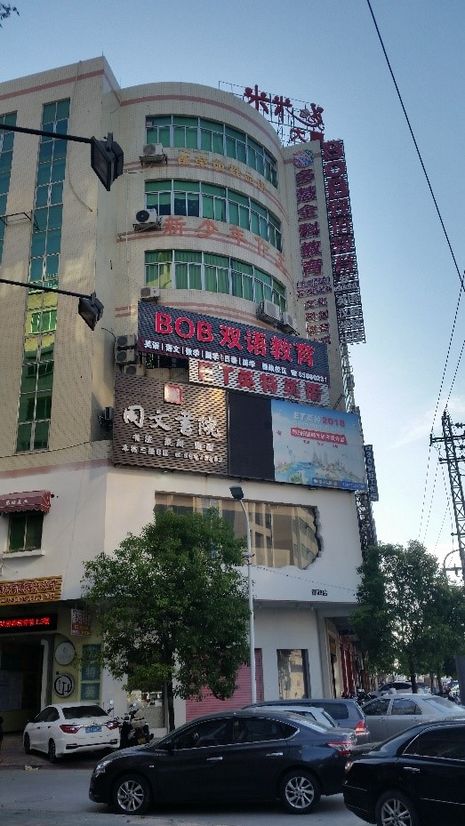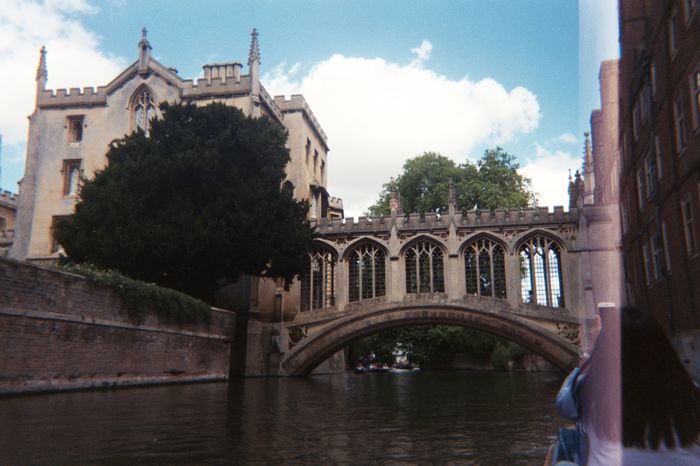Has COVID-19 changed the way I see China?
After two months teaching in China in 2018, Harry Taunton considers his experiences in relation to COVID-19

When we picture ourselves in a foreign country – one we have not visited – the space we imagine is built from a combination of memories of past holidays and projections of an expected reality. The latter is itself a holey Jenga tower made up of things we have seen or heard about this new destination: documentary footage, photographs, anecdotes and rumour. Those who have not ventured to China before might well have a perception of it that is constructed in a similar way, but now with the added brushstroke of the coronavirus.
"Nevertheless, what I hope to offer is a perspective which might serve to remind us that a nation is the sum of all its parts, not just one"
My spending two months in one small corner of China does not make me an authority on the country; and any ‘reality’ to which I claim to be privy will count only as another of those secondary accounts that constitute the architecture of any unvisited and imagined place. Nevertheless, what I hope to offer is a perspective which might serve to remind us that a nation is the sum of all its parts, not just one. Against the backdrop of COVID-19, I remember my time in China and ask whether I see it any differently because of the virus.
For seven weeks in summer 2018, I taught at a school in Shantou, Guangdong (south-eastern China). When I arrived, it did not look very much like any school I had imagined – it seemed more like a multi-story cinema on a busy road. The others who had flown out to earn their TEFL certificates were friendly and welcoming: some, like me, had come from Cambridge, some from other UK universities, whilst most had come from all over the world. We taught on the first floor and lived together in shared rooms on the second floor.
The accommodation was simple but relatively comfortable. That said, for a couple of nights in August I was forced to vacate the room I was sharing with four others when a dead rat was discovered in the ceiling near the air vent. What we had thought to be an extreme case of halitosis turned out to be an acrid fog with a very different source. The sinister game of ‘whodunit’ we had each been playing was over.
The very mention of this incident will no doubt have brought grimaces to faces expecting no less from a country where something as animal-related as COVID-19 originated. But is a house party full of bodies potentially carrying a deadly disease any less unsettling and disgusting? The dominos may have been nudged in one market in China, but has the global reaction been sufficiently self-aware to stop them from falling?
My teaching timetable was filled mostly by a class of 18 to 20-year-olds. They had all chosen English names for themselves which I eventually learned. I was provided with material (articles, dialogues and pictures from a textbook) for our two-hour classes which we would go through together: learning the new vocabulary and grammar; role-playing the different scenarios in the pictures; or practising writing and pronunciation. Slowly but surely, I built a relationship with the students: what had started as a quiet group became an enthusiastic bunch of friendly and willing students.
I occasionally went off-script. One afternoon, as a treat, I showed them Rowan Atkinson’s ‘nervous trainee priest’ scene from Four Weddings and a Funeral. They recognised Mr Bean’s face immediately and laughed along with the help of the Mandarin subtitles. What I had forgotten was that this scene was soon followed by newlyweds Bernard and Lydia hilariously celebrating their marriage in a dark room with Hugh Grant’s character hiding in a cupboard! The students all found this very amusing, but a week or so later I received a gentle rap on the knuckles from my Chinese teaching supervisor, informing me that such ‘love scenes’ were not appropriate in their country. Noted.
"The guilty party focus their knee-jerk unpleasantness and blinkered reactionism on the nearest available object relatable to the virus’ origin"
One particular student told me that he was planning on studying at Nottingham University that autumn. I often wonder how he enjoyed it. Chinese students in Cambridge and beyond have suffered from racism since the outbreak of the pandemic. This is a reaction fuelled by ignorance and frustration at the restrictions imposed by the pandemic. The guilty party focus their knee-jerk unpleasantness and blinkered reactionism on the nearest available object relatable to the virus’ origin. When I think of this young man and all the kids we taught that summer, such ignorance leaves a bitter taste in the mouth.
Once I had completed my 7 weeks of teaching in Shantou, we, the teachers, headed eight hours north to Yangshuo, Guilin – a place known for its beautiful mountainous scenery. On one outing, a friend and I hired mopeds and rode them along cliff-edges and down teeth-clatteringly rocky roads to the spot near the Li River which is used as the background art for the 20-yuan note. This week was one of the best I spent that summer.
I, then, journeyed to Hong Kong to spend a few days sightseeing before my flight home. Upon my return home, I fell ill for a fortnight, bedridden with a viral infection brought on by the smog of the metropolis. While I am presently in no rush – nor any position – to return to Hong Kong, this in no way tainted my trip. The colour and clarity of the memories I have from the whole two-month experience itself are not dulled by this grey sojourn in my sick bed. Has the effect of COVID-19, which is inextricably linked now to China, had any such dulling effect? No. I remember a bright, hot, lively, foreign country with a modern urban society and beautiful rural scenery: daunting, funny, confusing, enlightening and filled with people whose outlook on the world was really not so different from my own.
Prevailing Western narratives concerning COVID-19 and China do not share this view, though. Be it accusations of statistics manipulation or labelling it ‘The China Virus’, the long-term effects on international East-West relations will be frayed more by misconceptions, misnomers and myopia than by bodily injury.
 News / Uni Scout and Guide Club affirms trans inclusion 12 December 2025
News / Uni Scout and Guide Club affirms trans inclusion 12 December 2025 News / Cambridge Vet School gets lifeline year to stay accredited28 November 2025
News / Cambridge Vet School gets lifeline year to stay accredited28 November 2025 News / Cambridge study finds students learn better with notes than AI13 December 2025
News / Cambridge study finds students learn better with notes than AI13 December 2025 Science / Did your ex trip on King’s Parade? The science behind the ‘ick’12 December 2025
Science / Did your ex trip on King’s Parade? The science behind the ‘ick’12 December 2025 News / Pembroke to convert listed office building into accom9 December 2025
News / Pembroke to convert listed office building into accom9 December 2025








